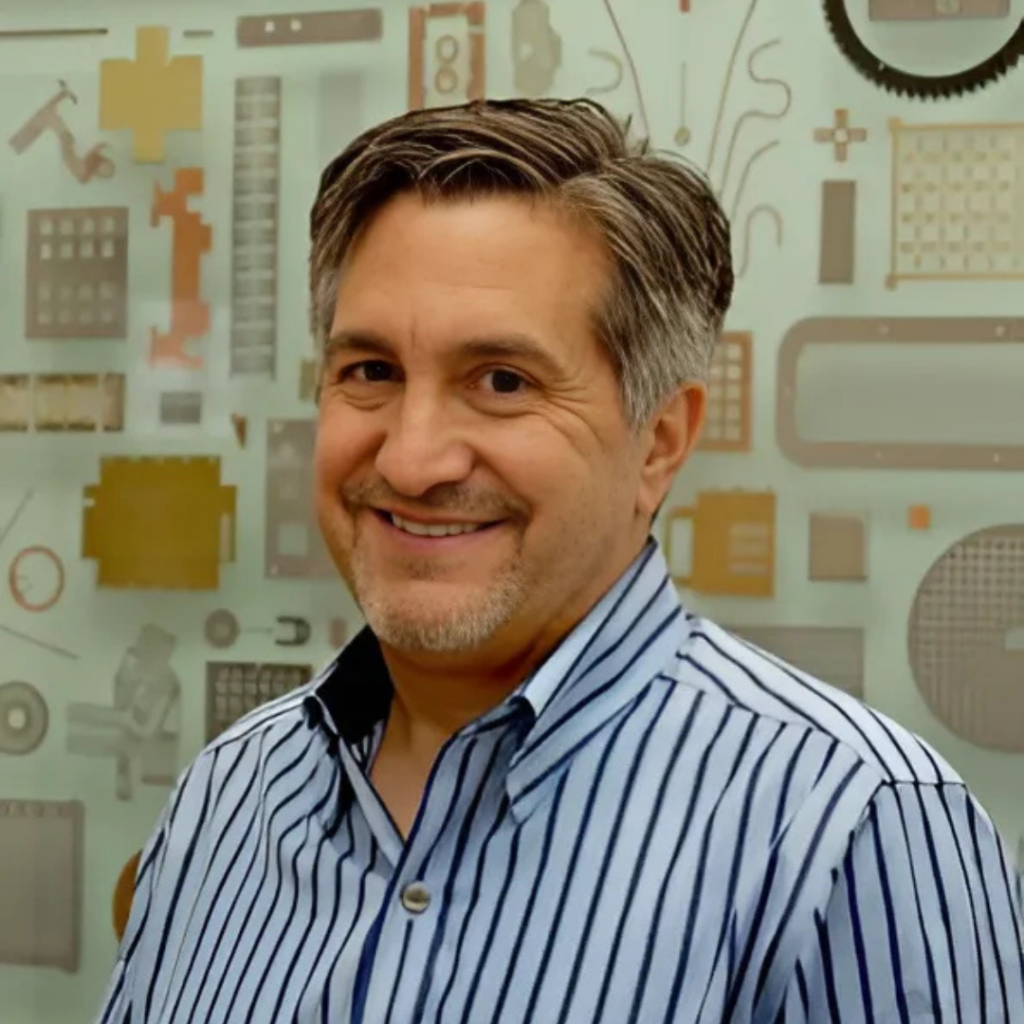Charles Cohen, president of Fotofab, a TPC company, has been elected to the Photo Chemical Machining Institute (PCMI) Board of Directors. The Photo Chemical Machining Institute (PCMI) is a collaborative, not-for-profit organization for manufacturers, suppliers and customers of the photochemical machining and electroforming industry.
Beginning January 2025, Cohen will serve a two-year term where he will support PCMI in advancing the photochemical machining industry through advocacy, education and industry collaboration.
“I am pleased to step into this official role with PCMI at such a pivotal time for this industry as demand for domestic manufacturing capabilities and capacity is increasing, and there’s a real need to attract and educate the next generation of manufacturers and engineers,” said Cohen. “The future of photochemical machining is bright, and I’m excited to be part of a community that is helping drive innovation for the industries that are shaping our future,” said Cohen.
Cohen has been with Fotofab since 2000, serving first as CFO before transitioning to president in 2010 when TPC acquired the manufacturer. Cohen is a graduate of Indiana University and holds an MBA from DePaul University, where he now serves on the Coleman Entrepreneurship Center Advisory Board. He is active in his community, also serving on the Board of Directors for Entrepreneur and Family Business Council (EFBC), AYSO Region 300 and The Village Field Club.
The Photochemical Machining Industry and Fotofab’s Role
Photochemical machining (PCM), also known as photochemical etching and chemical etching, is a subtractive metal fabrication process that uses photolithography and chemical etching to create precise metal components.
Unlike traditional machining methods, PCM does not stress or alter the material properties of the metals, making it ideal for industries that require intricate designs and tight tolerances, such as the high-tech sectors of aerospace, defense and medical devices. From prototyping to full-scale production, PCM enables faster design cycles, reduces costs and maintains exceptional quality. The role of PCM is expanding alongside the increasing demand for precision, speed and scalability in new technologies such as drones and space exploration.
Fotofab has been a pioneer in the PCM field since the company was founded in 1967, which is also when PCMI started. Fotofab was one of the first companies in the United States to adopt PCM as a primary manufacturing process. Through this process, Fotofab etches components for indispensable medical devices such as MRI, anesthesiology and dialysis machines, as well as components for defense and satellites. Fotofab’s capabilities also include supporting processes that complement PCM, such as metal forming and various types of coatings.
Fotofab, under Cohen’s leadership, has been at the forefront of adopting new technologies like direct imaging, which increases production speed and quality. Cohen emphasized that, “As we continue to explore new frontiers in air, land, sea and space, photochemical etching will remain a critical enabler of innovation.”
The Future of Photochemical Machining
With geopolitical uncertainty driving demand for domestic manufacturing, companies like Fotofab are well-positioned to serve high-stakes industries like defense and medical that require adherence to stringent regulatory standards.
“There’s a real need to bring more awareness on how photochemical etching can contribute to industries like medical, defense, aerospace and electronics to develop new technologies that will improve the world,” said Cohen.
As the demand for more complex and precise components continues to grow, PCM will play an increasingly critical role in the future of manufacturing. PCM’s ability to produce intricate, high-quality metal parts at speed and scale proves to be an indispensable tool for lifesaving technologies.
About Fotofab
Fotofab manufactures high-precision metal components with short lead times and tight tolerances. The company etches custom parts in prototype and production quantities, including fuel cell plates, medical snares, RF/EMI shields, shims, and washers. Engineering leaders in aerospace, defense, electronics, and medical device/implant companies call on Fotofab for its expertise in photochemical etching, thin metal forming, and finishing services.
About The Partner Companies
The Partner Companies (TPC), a global diversified manufacturing company that creates mission-critical solutions for innovators in the aerospace, defense, clean energy, medical, and technology industries. Founded in 2010, TPC has grown into an international leader with 10 specialty manufacturers in the United States, China, Wales, and Mexico: E-Fab, Elcon, Fotofab, Lattice Materials, LT Precision, Microphoto, Optiforms, PEI, Pinnacle Precision and UPG. TPC’s specialty manufacturers specialize in photochemical etching, ceramic metallization, crystal growth and electroforming along with core manufacturing capabilities such as injection molding, machining, metal fabrication and finishing. TPC supports each member entity with expertise in business growth, operations, finance, human resources, supply chain management and more. For more information about TPC and its specialty manufacturers, visit thepartnercos.com.
About the Photo Chemical Machining Institute (PCMI)
Founded in 1967, the Photo Chemical Machining Institute (PCMI) is a collaborative, not-for-profit organization for manufacturers, suppliers and customers of the photochemical machining and electroforming industry.
To learn more, visit their website: https://pcmi.org.

